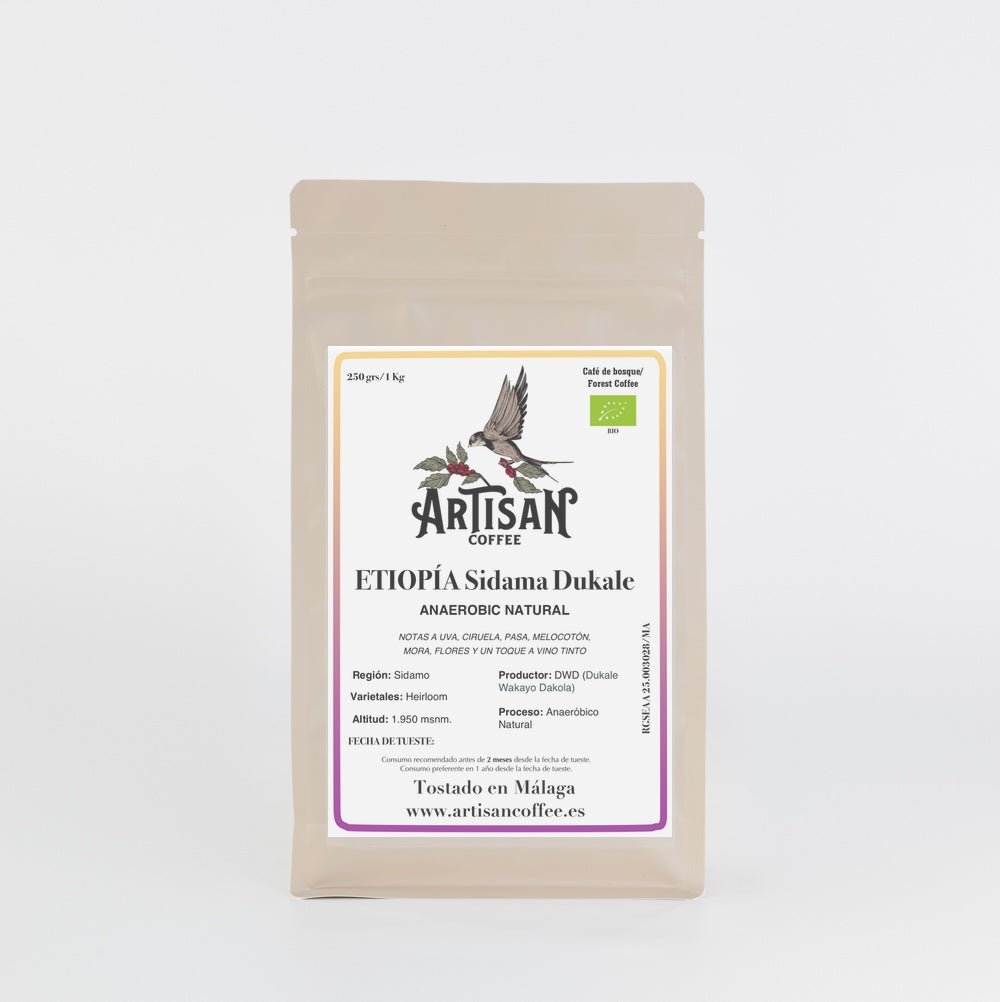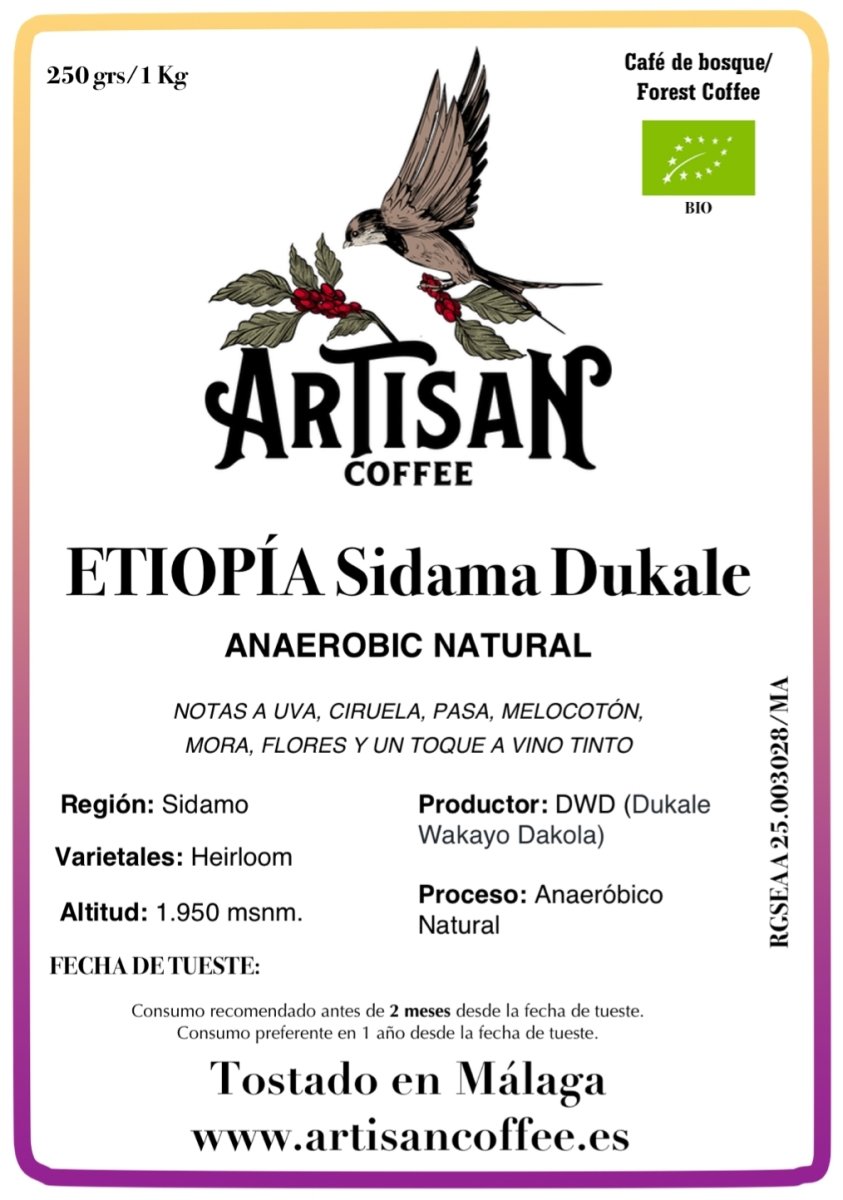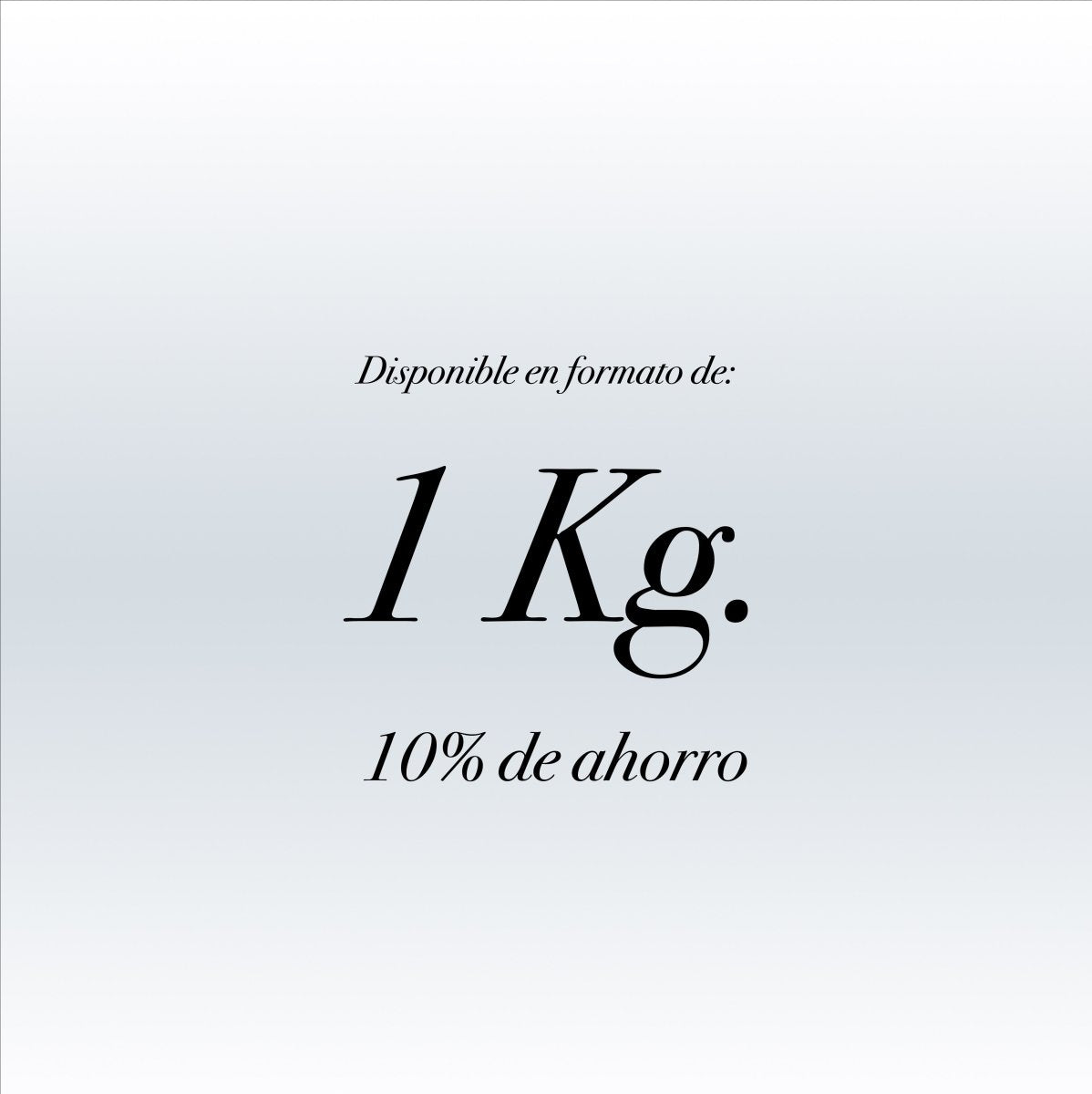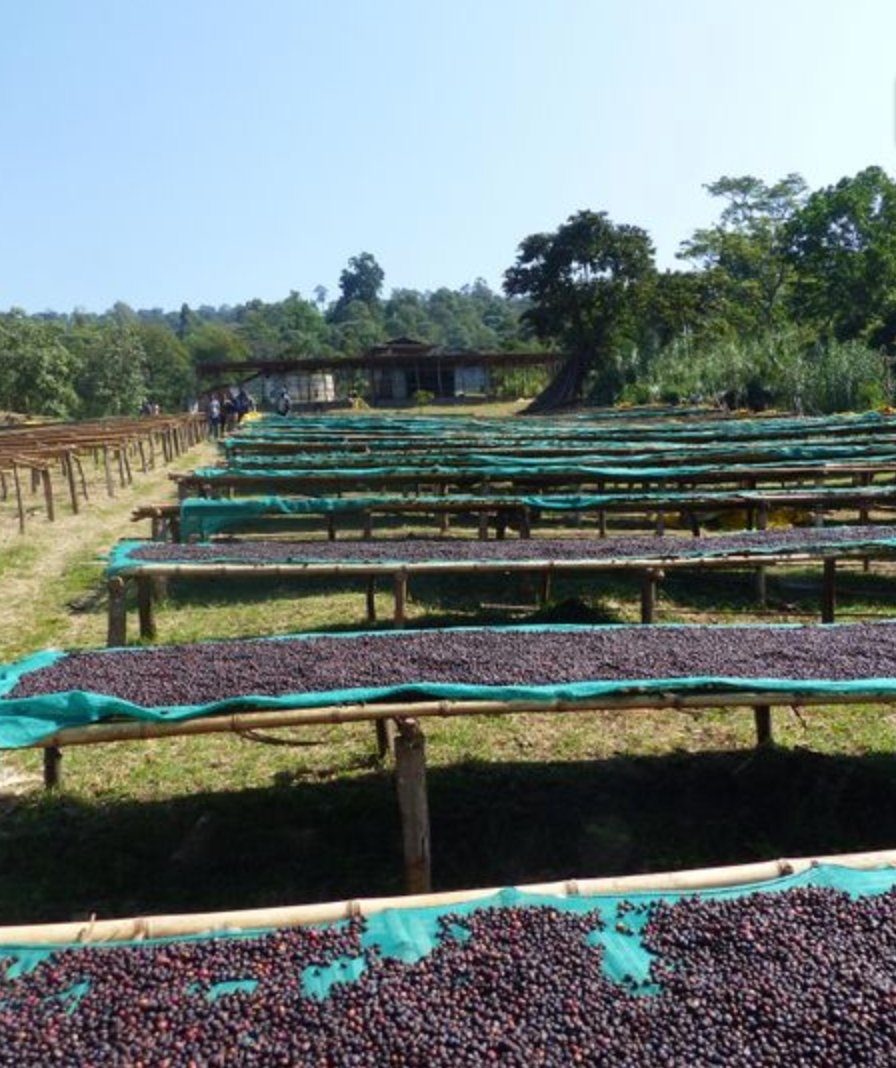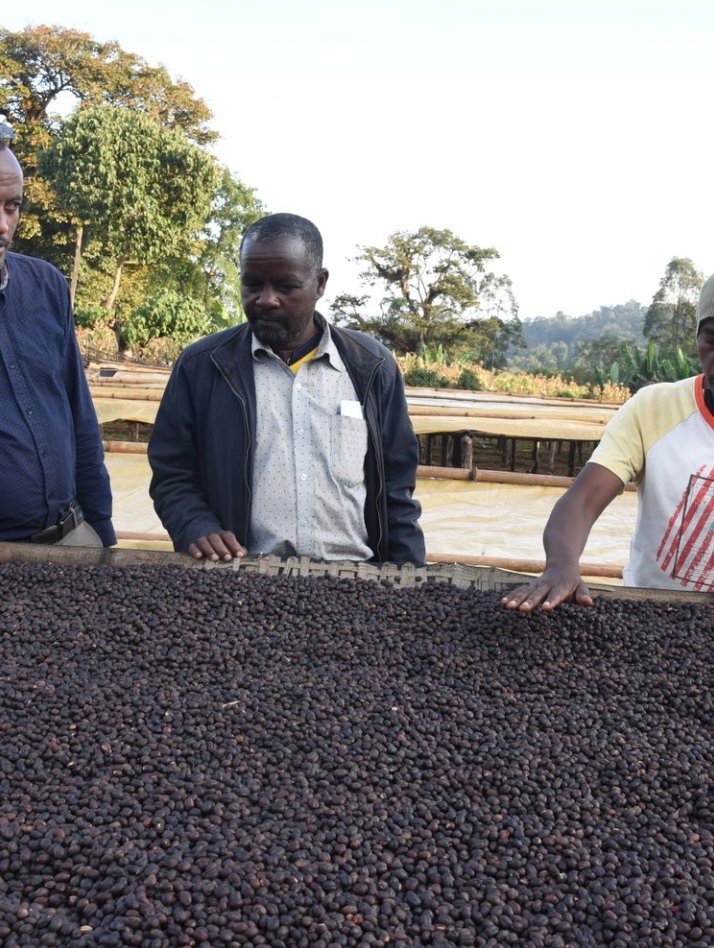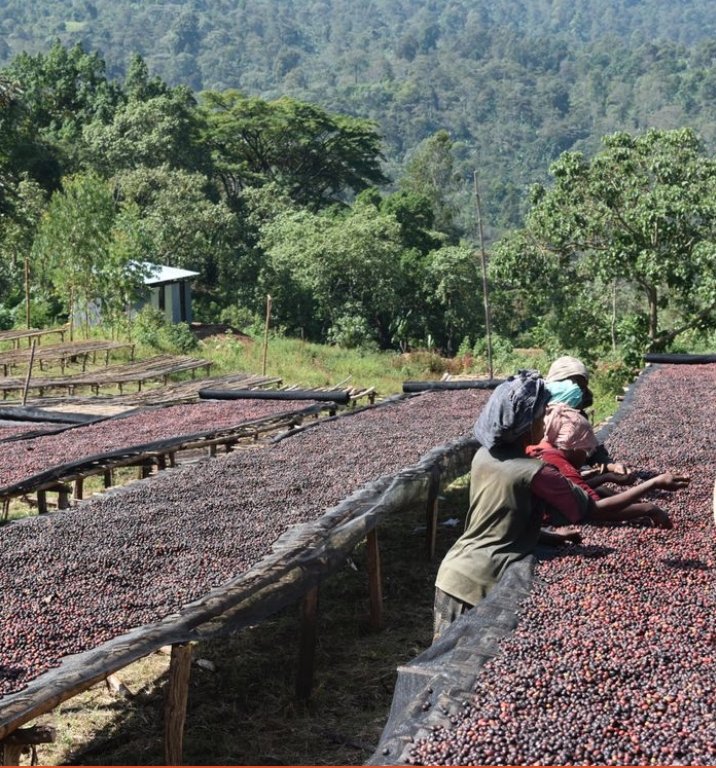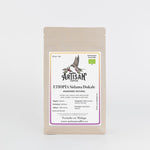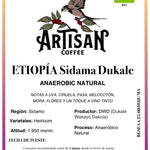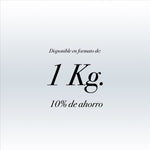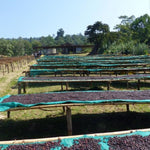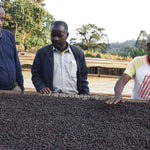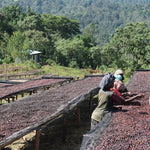Sidama Dukale. Ethiopian coffee. Natural Anaerobic.
Description
🇪🇹 Introducing Sidama Dukale, an exquisite specialty coffee from Ethiopia with a natural anaerobic process. This coffee, grown at an altitude of 1,950 meters in a mountainous terroir, comes from the Sidama region, famous for its rich biodiversity and unique volcanic soils.
RECOMMENDED PREPARATION
This Exceptional coffee is perfect for filtered preparations, such as the V60, Chemex or Aeropress. And if you like Cold Brew this is a coffee that you may love. Its profile is so powerful that it will always seem to have nailed the recipe. You may also love it for your moka coffee maker. And if you are an espresso lover, you can try it and you will love its fruity intensity.
Sensory profile : Notes of grape, plum, raisins, fig, peach, blackberry, raspberry, cherry, lemon, rose and red wine.
Producer: DWD (Dukale Wakayo Dakola)
Altitude: 1,950 meters above sea level
Terroir: Mountainous
Species: Arabica
Varietal : Heirloom
Harvest: November to January
Harvest type: Manual
Process: Natural Anaerobic
Drying: African beds
The dedicated producer, Ato Dukale , has built his reputation around quality and integrity. At the Bombe station, Dukale works with several small producers from nearby villages to harvest and prepare these exceptional coffee beans.
SENSORY NOTES. Flavor explosion
The complex and rich sensory profile of Dukale Sidama has notes that will remind you of grape, plum, raisins, fig, peach, blackberry, raspberry, cherry, lemon, rose and red wine. This coffee stands out for its sweetness , its powerful aroma and fruit flavor.
FROM THE FIELD TO YOUR CUP
The Bombe station , run by the Dukale family, is known for its attention to detail in producing quality coffees. Here, coffee cherries are hand-picked by producers from nearby villages. Each grain is cared for and prepared with the highest level of precision, going through a drying process in African beds, culminating in a meticulous anaerobic fermentation that enhances its sensory characteristics. This careful processing method, added to the rich biodiversity of the region, gives this coffee its truly distinct flavor and aroma.
A FAMILY TRADITION
Ato Dukale is the producer of this impressive coffee. Born in the Sidama region, where his parents owned a coffee farm, Ato Dukale was drawn to coffee from an early age. Today, with the help of his children , he continues his dedication to producing high-quality coffees. Their meticulous work at the Bombe station, along with their focus on sustainable development , has made Dukale Sidama an exceptional café.
Artisan Guarantees
Shipments in 48 hours - 72 business hours
Shipments in 48-72 business hours
Every day from Monday to Friday we prepare orders for our transport agency to pick them up at 2pm. If we have all the coffees you have ordered and they are roasted, we will send them that same day. Otherwise we will do everything possible to get it out the next day. Our transport agency assures us of deliveries in 24-48 hours.
Example 1:
If you place the order on Sunday afternoon. Normally, if we have roasted all the coffees that you have ordered from us, on Monday morning we will prepare all the orders for the weekend and that Monday at 2:00 p.m. your order will already be on its way, in the hands of our agency. On many occasions it will be delivered the next day, Tuesday before 7pm, but on other occasions you will have to wait until Wednesday to receive your order. For your peace of mind, you will normally receive an email with which you can track it.
Example 2) worst case
If you place an order on Friday at noon, the normal thing is that we will not have time to prepare it and that the agency will not be able to pick it up until Monday at 2 p.m., and it may be that, as in example 1) your order will not arrive until Tuesday or Wednesday before 7 p.m.
Example 3) Best case
If you place your order early on a Tuesday, it is likely (if we have all your coffees roasted) that your order will leave on Tuesday at 2:00 p.m. and if the agency delivers it to you in less than 24 hours, you will have your coffee on Wednesday before 7:00 p.m.
Tracking numbers
Our transport agency, once it has received and processed the package, will send you an email with the tracking number so that you can manage any changes directly with them.
Why free shipping?
We want you to order coffee from us periodically and to have direct contact with you. For this reason we have created our coffee lovers club, the Artisan Coffee Club , and for the members of this club we will assume the Shipping Costs , of course it is an effort on our part. But we are sure that in this way we will become your trusted coffee supplier and that you will be the first to receive our communications with enthusiasm.
FAQ. Frequent questions
What is specialty coffee?
A specialty coffee is characterized by using high-quality beans that are grown in optimal conditions and harvested and processed with care.
This type of coffee is scored by certified cuppers and scores above 80 on the 100-point scale of the Specialty Coffee Association (SCA).
Although we at Artisan Coffee purchase the vast majority of our coffees above 85 SCA points.
Free shipping. I have seen in your communication that coffee shipments are free. Why don't they come out?
That's right, but to access that "privilege" you must be subscribed to our newsletter. In this way we ensure direct dealings with you, saving costs and you will benefit from free shipping, as well as being the first to find out about our news and offers.
If you have already subscribed, check your email, and also your spam folder just in case. If you have already subscribed and cannot find it, contact support.
If you have not subscribed yet and want free shipping, click here (link pending)
When the coffee label or information says process: natural, what does it mean?
This information has little to do with what you usually find in supermarkets, and the only information you will have is whether it is natural roasted, blended or roasted (we talk about this below in another question).
When we talk about processes there are basically 3 types:
- Natural or Dried: In this method, the coffee fruits are dried in the sun immediately after harvesting, with the cherry still intact. Once dry, the pulp and skin are removed. This process can intensify the sweetness and give a fruity flavor to the coffee.
- Washed or Wet: Here, coffee cherries are pulped immediately after harvesting. The grains, still covered with mucilage, are fermented in water to break it down. They are then washed and dried. This method tends to highlight the acidity and flavor characteristics of the grain.
- Honey or Miel: This process is an intermediate point between natural and washed. After cherries are stripped of their skin, a layer of mucilage (which is sticky like honey, hence the name) is left around the kernel during drying. This method can result in a coffee with pronounced body and sweetness and mild acidity.
What is the degree of roasting and why is it important?
The degree of roast refers to how much a coffee bean has been roasted. Grades range from light roast, which retains many of the bean's natural flavors, to dark roast, which has a more roasted flavor and less of the bean's original flavors. In specialty coffee, the roast is carefully selected to highlight the unique flavors and characteristics of each bean.
In general, we apply a medium roast to our coffees, except in certain cases when we will apply a medium-low roast so as not to lose those delicate notes that tend to disappear with larger roasts.
We roast each coffee in a completely different way, and in our control tastings we define whether that coffee needs a different roast than the one we have done in order to further enhance its flavor notes.
I don't see in the info if the coffee is natural, blended or roasted?
All our coffees are Arabica and are roasted naturally , and in no case do we use roasting.
We only apply heat and do not add any extra ingredients, like roasting does, which adds sugar.
How does specialty coffee contribute to sustainability and environmental protection?
Many specialty coffee producers practice sustainable growing methods that protect the environment. This may include using shade to protect coffee plants and conserve biodiversity, water conservation through efficient irrigation systems, and composting coffee waste. Additionally, many specialty coffee producers receive a fair price for their product, allowing them to invest in sustainable agricultural practices.
In addition, our coffee bags are part of a CO2 compensation project.


